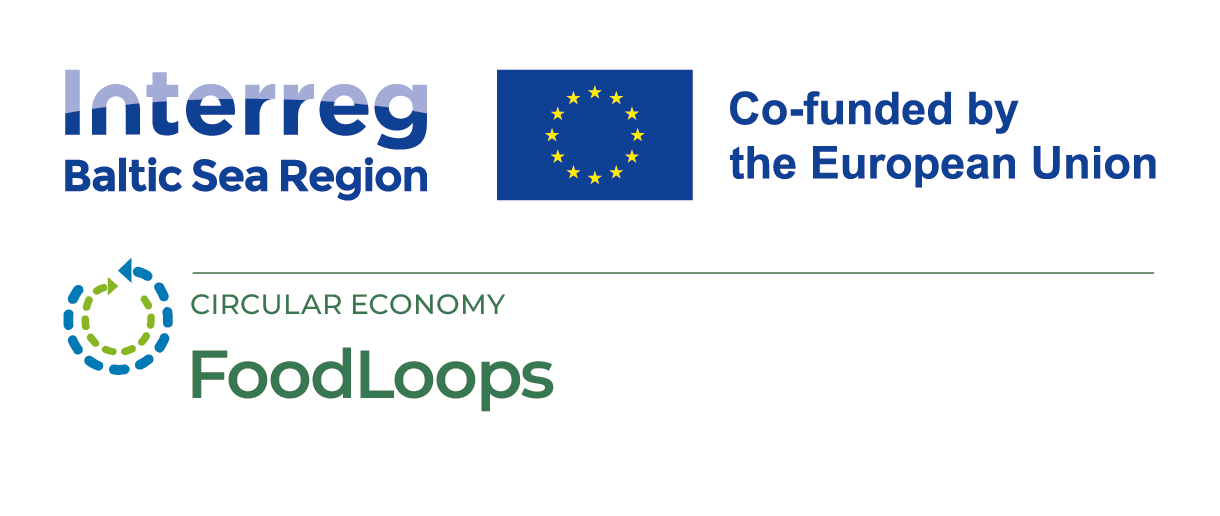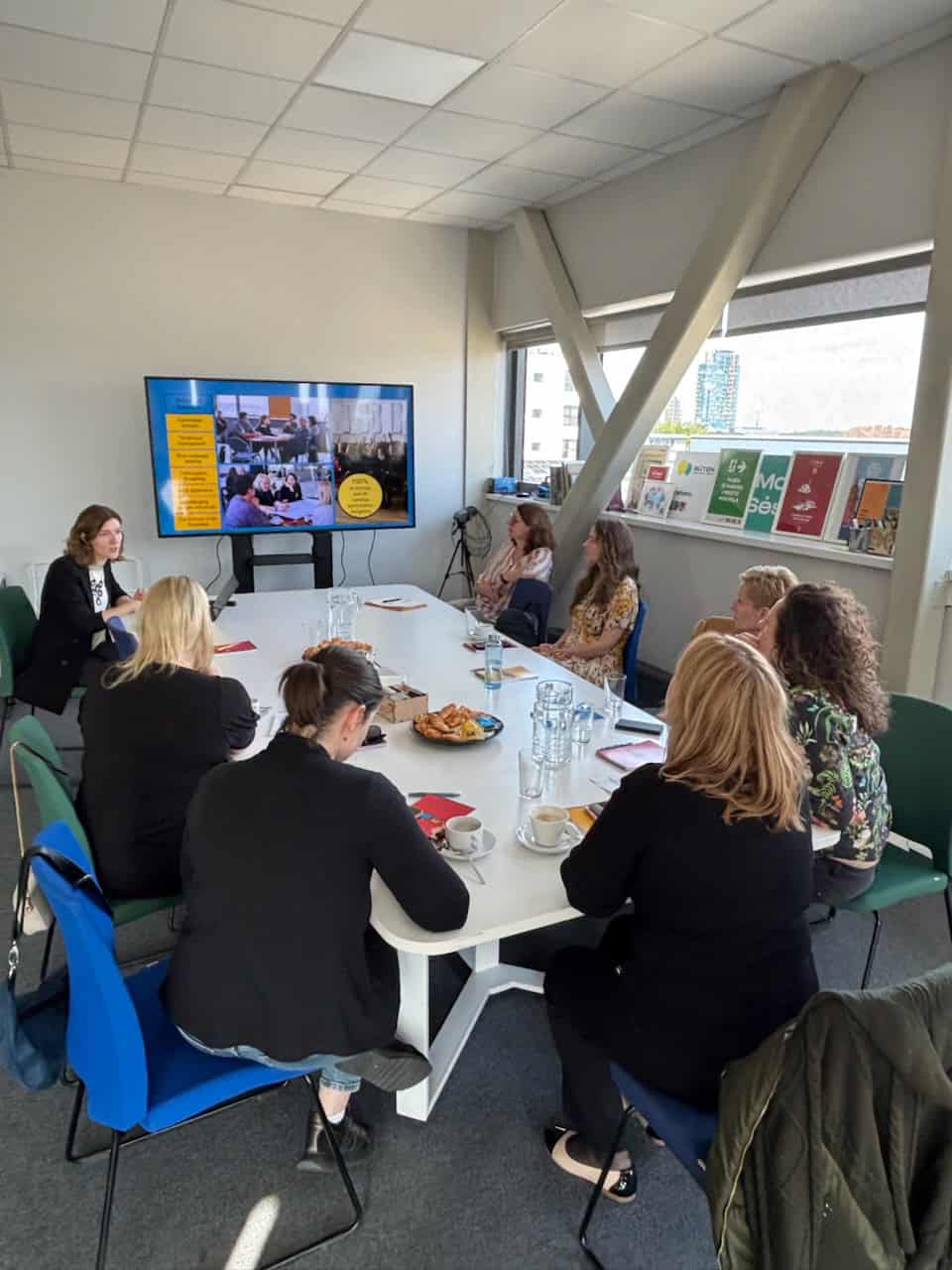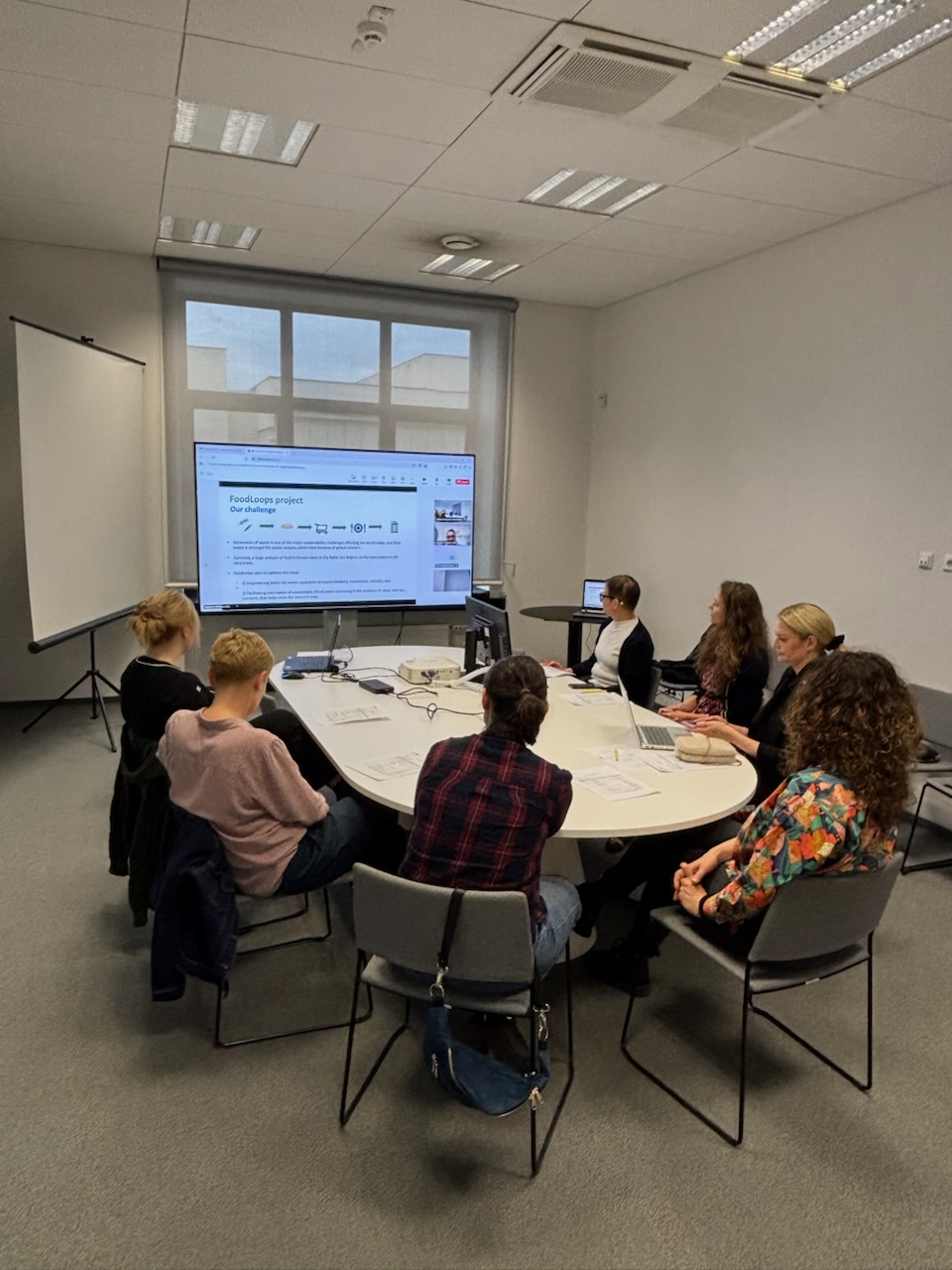
FoodLoops partners meeting in Vilnius: experiences, ideas and exploration of the local context
22 July 2025
On May 21–22, 2025, a meeting of FoodLoops project partners took place in Vilnius, gathering representatives from Germany, Finland, Poland and Lithuania. The main goal of the meeting was to discuss the progress of the project, exchange ideas, and explore local solutions related to the development of circular food systems. The two-day programme included partner presentations, visits to various organisations, and discussions on how sustainable food systems can be created through cross-sectoral collaboration, education, technological solutions and community engagement.
The first day began with a presentation session. It was opened by Ahmad Hafiz, a representative of the German organisation Collaborating Centre on Sustainable Consumption and Production (CSCP). The presentation addressed key aspects of the FoodLoops project: international partner cooperation, implementation of pilot initiatives, community engagement models and the methodological publication FoodLoops Manual on Local Cooperation for Circular Biowaste in Schools and Beyond, designed to support schools and municipalities in developing locally adapted circular biowaste practices.
Aleksandra Kulik, a representative of Gdańsk Municipality, presented Poland experience – a systemic food waste reduction model implemented in primary schools. The model applies a holistic approach that includes food waste stream monitoring, student involvement, education, and composting. It was emphasized that passing compost to farmers is economically inefficient, so local solutions should be developed: composting initiatives, sustainable public procurement, and local food supply chains.
Ulla Santti, from Savonia University of Applied Sciences (Finland), shared experience on how students are involved in food waste prevention. They participate in menu planning, waste monitoring, and surveys. Research shows that digital tools (such as lunch ordering apps) and more open dialogue between students, canteen staff, and school administrators can significantly reduce food waste.
Lithuanian representative Dr. Zita Čeponytė presented a structured composting pilot model in schools, which includes waste audit, teacher training, hands-on composting in collaboration with local partners, and evaluation of the results. This is a concrete example of how circular economy principles can be implemented in education not only theoretically, but also through practical application.
The Change(K)now! initiative, funded by the Interreg Baltic Sea Region (BSR) programme, was also presented. In Lithuania, the project is being implemented in the city of Anykščiai, where a reusable food container deposit system is being tested in ten local cafés and restaurants. The initiative includes technological solutions, communication campaigns, training, and community engagement, highlighting a systemic approach to transitioning from single-use to reusable packaging systems.
After the presentations, partners visited the Food Bank food giveaway point and production facility. During the visit, they became familiar with the model for collecting and redistributing surplus food – some products are provided to socially vulnerable individuals, others are processed into long shelf-life products. This experience demonstrated how surplus food can be used as a valuable resource rather than waste, and how such models can be integrated into educational initiatives.
On the second day, partners met with representatives of EDU Vilnius and the Vilnius Regional Waste Management Centre. EDU Vilnius presented how sustainability topics are systematically integrated into the city school curricula – covering climate change, healthy lifestyles, and responsible consumption. The FoodLoops project complements these foundations by introducing the circular food system topic as a practical tool for learning and civic education.
Later, the partners visited the Vilnius Regional Waste Management Centre, where the city food waste sorting system was presented. Waste is placed in general waste containers using special orange bags, which are then automatically separated and used for energy production in mechanical-biological treatment facilities. This advanced technology enables significant reductions in food waste and greenhouse gas emissions, but its success depends on correct sorting by residents – therefore, education and behavioural change, where schools play a key role, are essential.
Such practical meetings not only help to develop sustainable models at the local level, but also directly contribute to the goals of the Baltic Sea Region programme to promote climate neutrality, circular economy and stronger regional cooperation.







